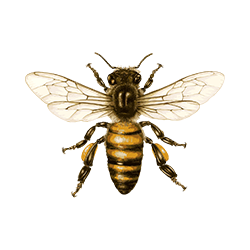SECOND BOOK, PANTAGRUEL
Foreword, Prelude, Beginning, Exordium, Explanation, Introduction, Opening, Overture, Preamble …
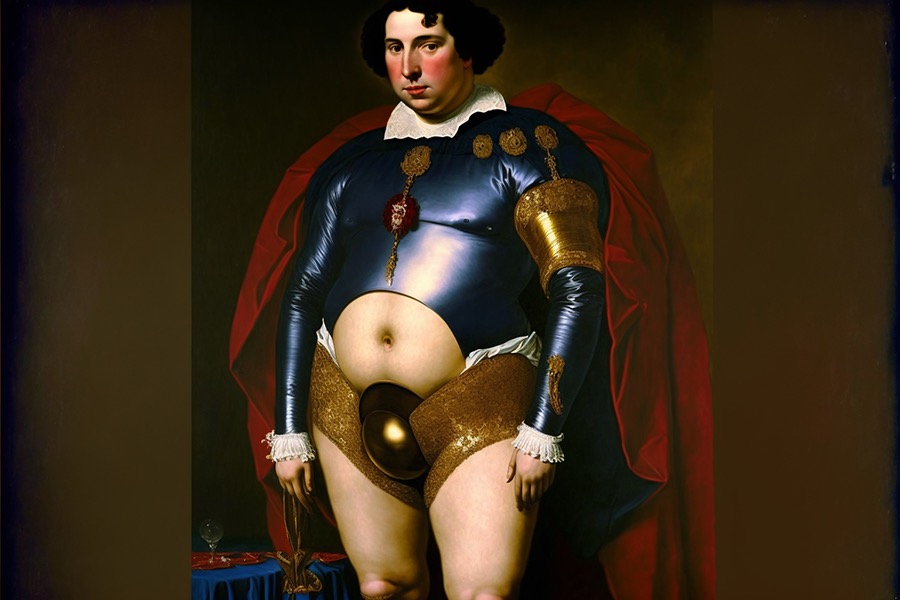
Most illustrious and thrice valorous champions, gentlemen and others, who willingly apply your minds to the entertainment of pretty conceits and honest harmless knacks of wit; you have not long ago seen, read, and understood the great and inestimable Chronicle of the huge and mighty giant Gargantua, and, like upright faithfullists, have firmly believed all to be true that is contained in them, and have very often passed your time with them amongst honourable ladies and gentlewomen, telling them fair long stories, when you were out of all other talk, for which you are worthy of great praise and sempiternal memory. And I do heartily wish that every man would lay aside his own business, meddle no more with his profession nor trade, and throw all affairs concerning himself behind his back, to attend this wholly, without distracting or troubling his mind with anything else, until he have learned them without book; that if by chance the art of printing should cease, or in case that in time to come all books should perish, every man might truly teach them unto his children, and deliver them over to his successors and survivors from hand to hand as a religious cabal; for there is in it more profit than a rabble of great pocky loggerheads are able to discern, who surely understand far less in these little merriments than the fool Raclet did in the Institutions of Justinian.
Chapter XVIII
How a great scholar of England would have argued against Pantagruel, and was overcome by Panurge.

In that same time a certain learned man named Thaumast, hearing the fame and renown of Pantagruel’s incomparable knowledge, came out of his own country of England with an intent only to see him, to try thereby and prove whether his knowledge in effect was so great as it was reported to be. In this resolution being arrived at Paris, he went forthwith unto the house of the said Pantagruel, who was lodged in the palace of St. Denis, and was then walking in the garden thereof with Panurge, philosophizing after the fashion of the Peripatetics. At his first entrance he startled, and was almost out of his wits for fear, seeing him so great and so tall. Then did he salute him courteously as the manner is, and said unto him, Very true it is, saith Plato the prince of philosophers, that if the image and knowledge of wisdom were corporeal and visible to the eyes of mortals, it would stir up all the world to admire her. Which we may the rather believe that the very bare report thereof, scattered in the air, if it happen to be received into the ears of men, who, for being studious and lovers of virtuous things are called philosophers, doth not suffer them to sleep nor rest in quiet, but so pricketh them up and sets them on fire to run unto the place where the person is, in whom the said knowledge is said to have built her temple and uttered her oracles. As it was manifestly shown unto us in the Queen of Sheba, who came from the utmost borders of the East and Persian Sea, to see the order of Solomon’s house and to hear his wisdom; in Anacharsis, who came out of Scythia, even unto Athens, to see Solon; in Pythagoras, who travelled far to visit the memphitical vaticinators; in Plato, who went a great way off to see the magicians of Egypt, and Architus of Tarentum; in Apollonius Tyaneus, who went as far as unto Mount Caucasus, passed along the Scythians, the Massagetes, the Indians, and sailed over the great river Phison, even to the Brachmans to see Hiarchus; as likewise unto Babylon, Chaldea, Media, Assyria, Parthia, Syria, Phoenicia, Arabia, Palestina, and Alexandria, even unto Aethiopia, to see the Gymnosophists. The like example have we of Titus Livius, whom to see and hear divers studious persons came to Rome from the confines of France and Spain. I dare not reckon myself in the number of those so excellent persons, but well would be called studious, and a lover, not only of learning, but of learned men also. And indeed, having heard the report of your so inestimable knowledge, I have left my country, my friends, my kindred, and my house, and am come thus far, valuing at nothing the length of the way, the tediousness of the sea, nor strangeness of the land, and that only to see you and to confer with you about some passages in philosophy, of geomancy, and of the cabalistic art, whereof I am doubtful and cannot satisfy my mind; which if you can resolve, I yield myself unto you for a slave henceforward, together with all my posterity, for other gift have I none that I can esteem a recompense sufficient for so great a favour. I will reduce them into writing, and to-morrow publish them to all the learned men in the city, that we may dispute publicly before them.

But see in what manner I mean that we shall dispute. I will not argue pro et contra, as do the sottish sophisters of this town and other places. Likewise I will not dispute after the manner of the Academics by declamation; nor yet by numbers, as Pythagoras was wont to do, and as Picus de la Mirandula did of late at Rome. But I will dispute by signs only without speaking, for the matters are so abstruse, hard, and arduous, that words proceeding from the mouth of man will never be sufficient for unfolding of them to my liking. May it, therefore, please your magnificence to be there; it shall be at the great hall of Navarre at seven o’clock in the morning. When he had spoken these words, Pantagruel very honourably said unto him: Sir, of the graces that God hath bestowed upon me, I would not deny to communicate unto any man to my power. For whatever comes from him is good, and his pleasure is that it should be increased when we come amongst men worthy and fit to receive this celestial manna of honest literature. In which number, because that in this time, as I do already very plainly perceive, thou holdest the first rank, I give thee notice that at all hours thou shalt find me ready to condescend to every one of thy requests according to my poor ability; although I ought rather to learn of thee than thou of me. But, as thou hast protested, we will confer of these doubts together, and will seek out the resolution, even unto the bottom of that undrainable well where Heraclitus says the truth lies hidden. And I do highly commend the manner of arguing which thou hast proposed, to wit, by signs without speaking; for by this means thou and I shall understand one another well enough, and yet shall be free from this clapping of hands which these blockish sophisters make when any of the arguers hath gotten the better of the argument. Now to-morrow I will not fail to meet thee at the place and hour that thou hast appointed, but let me entreat thee that there be not any strife or uproar between us, and that we seek not the honour and applause of men, but the truth only. To which Thaumast answered: The Lord God maintain you in his favour and grace, and, instead of my thankfulness to you, pour down his blessings upon you, for that your highness and magnificent greatness hath not disdained to descend to the grant of the request of my poor baseness. So farewell till to-morrow! Farewell, said Pantagruel.
Gentlemen, you that read this present discourse, think not that ever men were more elevated and transported in their thoughts than all this night were both Thaumast and Pantagruel; for the said Thaumast said to the keeper of the house of Cluny, where he was lodged, that in all his life he had never known himself so dry as he was that night. I think, said he, that Pantagruel held me by the throat. Give order, I pray you, that we may have some drink, and see that some fresh water be brought to us, to gargle my palate. On the other side, Pantagruel stretched his wits as high as he could, entering into very deep and serious meditations, and did nothing all that night but dote upon and turn over the book of Beda, De numeris et signis; Plotin’s book, De inenarrabilibus; the book of Proclus, De magia; the book of Artemidorus peri Oneirokritikon; of Anaxagoras, peri Zemeion; Dinarius, peri Aphaton; the books of Philiston; Hipponax, peri Anekphoneton, and a rabble of others, so long, that Panurge said unto him:
My lord, leave all these thoughts and go to bed; for I perceive your spirits to be so troubled by a too intensive bending of them, that you may easily fall into some quotidian fever with this so excessive thinking and plodding. But, having first drunk five and twenty or thirty good draughts, retire yourself and sleep your fill, for in the morning I will argue against and answer my master the Englishman, and if I drive him not ad metam non loqui, then call me knave. Yea but, said he, my friend Panurge, he is marvellously learned; how wilt thou be able to answer him? Very well, answered Panurge; I pray you talk no more of it, but let me alone. Is any man so learned as the devils are? No, indeed, said Pantagruel, without God’s especial grace. Yet for all that, said Panurge, I have argued against them, gravelled and blanked them in disputation, and laid them so squat upon their tails that I have made them look like monkeys. Therefore be assured that to-morrow I will make this vain-glorious Englishman to skite vinegar before all the world. So Panurge spent the night with tippling amongst the pages, and played away all the points of his breeches at primus secundus and at peck point, in French called La Vergette. Yet, when the condescended on time was come, he failed not to conduct his master Pantagruel to the appointed place, unto which, believe me, there was neither great nor small in Paris but came, thinking with themselves that this devilish Pantagruel, who had overthrown and vanquished in dispute all these doting fresh-water sophisters, would now get full payment and be tickled to some purpose. For this Englishman is a terrible bustler and horrible coil-keeper. We will see who will be conqueror, for he never met with his match before.
Thus all being assembled, Thaumast stayed for them, and then, when Pantagruel and Panurge came into the hall, all the schoolboys, professors of arts, senior sophisters, and bachelors began to clap their hands, as their scurvy custom is. But Pantagruel cried out with a loud voice, as if it had been the sound of a double cannon, saying, Peace, with a devil to you, peace! By G–, you rogues, if you trouble me here, I will cut off the heads of everyone of you. At which words they remained all daunted and astonished like so many ducks, and durst not do so much as cough, although they had swallowed fifteen pounds of feathers. Withal they grew so dry with this only voice, that they laid out their tongues a full half foot beyond their mouths, as if Pantagruel had salted all their throats. Then began Panurge to speak, saying to the Englishman, Sir, are you come hither to dispute contentiously in those propositions you have set down, or, otherwise, but to learn and know the truth? To which answered Thaumast, Sir, no other thing brought me hither but the great desire I had to learn and to know that of which I have doubted all my life long, and have neither found book nor man able to content me in the resolution of those doubts which I have proposed. And, as for disputing contentiously, I will not do it, for it is too base a thing, and therefore leave it to those sottish sophisters who in their disputes do not search for the truth, but for contradiction only and debate. Then said Panurge, If I, who am but a mean and inconsiderable disciple of my master my lord Pantagruel, content and satisfy you in all and everything, it were a thing below my said master wherewith to trouble him. Therefore is it fitter that he be chairman, and sit as a judge and moderator of our discourse and purpose, and give you satisfaction in many things wherein perhaps I shall be wanting to your expectation. Truly, said Thaumast, it is very well said; begin then. Now you must note that Panurge had set at the end of his long codpiece a pretty tuft of red silk, as also of white, green, and blue, and within it had put a fair orange.
Chapter XIX
How Panurge put to a nonplus the Englishman that argued by signs.
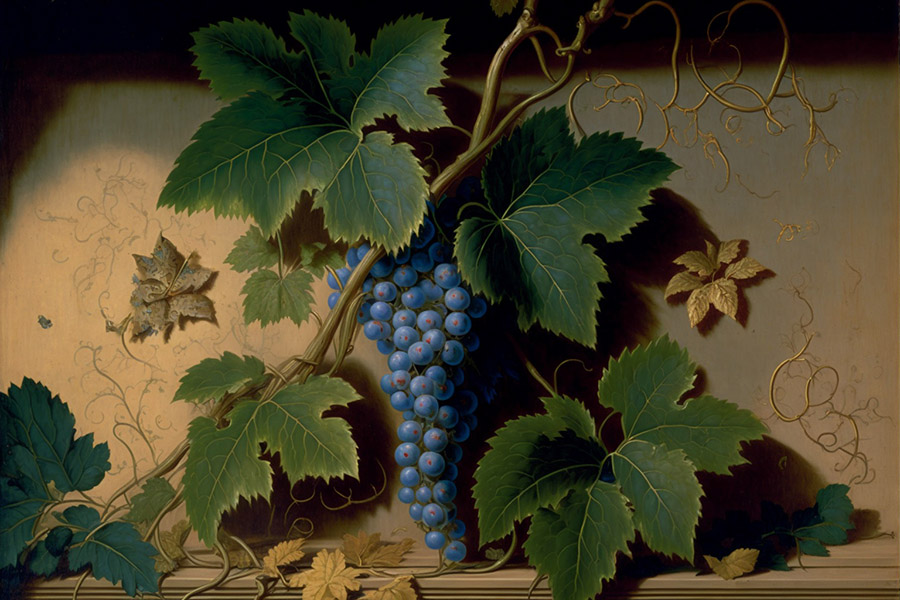
Everybody then taking heed, and hearkening with great silence, the Englishman lift up on high into the air his two hands severally, clunching in all the tops of his fingers together, after the manner which, a la Chinonnese, they call the hen’s arse, and struck the one hand on the other by the nails four several times. Then he, opening them, struck the one with the flat of the other till it yielded a clashing noise, and that only once. Again, in joining them as before, he struck twice, and afterwards four times in opening them. Then did he lay them joined, and extended the one towards the other, as if he had been devoutly to send up his prayers unto God. Panurge suddenly lifted up in the air his right hand, and put the thumb thereof into the nostril of the same side, holding his four fingers straight out, and closed orderly in a parallel line to the point of his nose, shutting the left eye wholly, and making the other wink with a profound depression of the eyebrows and eyelids. Then lifted he up his left hand, with hard wringing and stretching forth his four fingers and elevating his thumb, which he held in a line directly correspondent to the situation of his right hand, with the distance of a cubit and a half between them. This done, in the same form he abased towards the ground about the one and the other hand. Lastly, he held them in the midst, as aiming right at the Englishman’s nose. And if Mercury,–said the Englishman. There Panurge interrupted him, and said, You have spoken, Mask.
Then made the Englishman this sign. His left hand all open he lifted up into the air, then instantly shut into his fist the four fingers thereof, and his thumb extended at length he placed upon the gristle of his nose. Presently after, he lifted up his right hand all open, and all open abased and bent it downwards, putting the thumb thereof in the very place where the little finger of the left hand did close in the fist, and the four right-hand fingers he softly moved in the air. Then contrarily he did with the right hand what he had done with the left, and with the left what he had done with the right.
Panurge, being not a whit amazed at this, drew out into the air his trismegist codpiece with the left hand, and with his right drew forth a truncheon of a white ox-rib, and two pieces of wood of a like form, one of black ebony and the other of incarnation brasil, and put them betwixt the fingers of that hand in good symmetry; then, knocking them together, made such a noise as the lepers of Brittany use to do with their clappering clickets, yet better resounding and far more harmonious, and with his tongue contracted in his mouth did very merrily warble it, always looking fixedly upon the Englishman. The divines, physicians, and chirurgeons that were there thought that by this sign he would have inferred that the Englishman was a leper. The counsellors, lawyers, and decretalists conceived that by doing this he would have concluded some kind of mortal felicity to consist in leprosy, as the Lord maintained heretofore.
The Englishman for all this was nothing daunted, but holding up his two hands in the air, kept them in such form that he closed the three master-fingers in his fist, and passing his thumbs through his indical or foremost and middle fingers, his auriculary or little fingers remained extended and stretched out, and so presented he them to Panurge. Then joined he them so that the right thumb touched the left, and the left little finger touched the right. Hereat Panurge, without speaking one word, lift up his hands and made this sign.
He put the nail of the forefinger of his left hand to the nail of the thumb of the same, making in the middle of the distance as it were a buckle, and of his right hand shut up all the fingers into his fist, except the forefinger, which he often thrust in and out through the said two others of the left hand. Then stretched he out the forefinger and middle finger or medical of his right hand, holding them asunder as much as he could, and thrusting them towards Thaumast. Then did he put the thumb of his left hand upon the corner of his left eye, stretching out all his hand like the wing of a bird or the fin of a fish, and moving it very daintily this way and that way, he did as much with his right hand upon the corner of his right eye. Thaumast began then to wax somewhat pale, and to tremble, and made him this sign.
With the middle finger of his right hand he struck against the muscle of the palm or pulp which is under the thumb. Then put he the forefinger of the right hand in the like buckle of the left, but he put it under, and not over, as Panurge did. Then Panurge knocked one hand against another, and blowed in his palm, and put again the forefinger of his right hand into the overture or mouth of the left, pulling it often in and out. Then held he out his chin, most intentively looking upon Thaumast. The people there, which understood nothing in the other signs, knew very well that therein he demanded, without speaking a word to Thaumast, What do you mean by that? In effect, Thaumast then began to sweat great drops, and seemed to all the spectators a man strangely ravished in high contemplation. Then he bethought himself, and put all the nails of his left hand against those of his right, opening his fingers as if they had been semicircles, and with this sign lift up his hands as high as he could. Whereupon Panurge presently put the thumb of his right hand under his jaws, and the little finger thereof in the mouth of the left hand, and in this posture made his teeth to sound very melodiously, the upper against the lower. With this Thaumast, with great toil and vexation of spirit, rose up, but in rising let a great baker’s fart, for the bran came after, and pissing withal very strong vinegar, stunk like all the devils in hell. The company began to stop their noses; for he had conskited himself with mere anguish and perplexity. Then lifted he up his right hand, clunching it in such sort that he brought the ends of all his fingers to meet together, and his left hand he laid flat upon his breast. Whereat Panurge drew out his long codpiece with his tuff, and stretched it forth a cubit and a half, holding it in the air with his right hand, and with his left took out his orange, and, casting it up into the air seven times, at the eighth he hid it in the fist of his right hand, holding it steadily up on high, and then began to shake his fair codpiece, showing it to Thaumast.
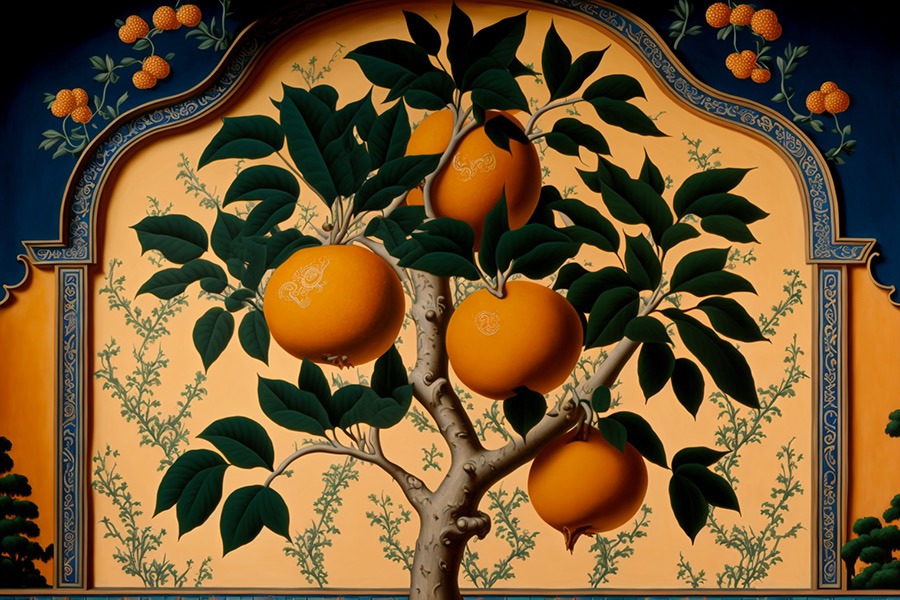
After that, Thaumast began to puff up his two cheeks like a player on a bagpipe, and blew as if he had been to puff up a pig’s bladder. Whereupon Panurge put one finger of his left hand in his nockandrow, by some called St. Patrick’s hole, and with his mouth sucked in the air, in such a manner as when one eats oysters in the shell, or when we sup up our broth. This done, he opened his mouth somewhat, and struck his right hand flat upon it, making therewith a great and a deep sound, as if it came from the superficies of the midriff through the trachiartery or pipe of the lungs, and this he did for sixteen times; but Thaumast did always keep blowing like a goose. Then Panurge put the forefinger of his right hand into his mouth, pressing it very hard to the muscles thereof; then he drew it out, and withal made a great noise, as when little boys shoot pellets out of the pot-cannons made of the hollow sticks of the branch of an alder-tree, and he did it nine times.
Then Thaumast cried out, Ha, my masters, a great secret! With this he put in his hand up to the elbow, then drew out a dagger that he had, holding it by the point downwards. Whereat Panurge took his long codpiece, and shook it as hard as he could against his thighs; then put his two hands entwined in manner of a comb upon his head, laying out his tongue as far as he was able, and turning his eyes in his head like a goat that is ready to die. Ha, I understand, said Thaumast, but what? making such a sign that he put the haft of his dagger against his breast, and upon the point thereof the flat of his hand, turning in a little the ends of his fingers. Whereat Panurge held down his head on the left side, and put his middle finger into his right ear, holding up his thumb bolt upright. Then he crossed his two arms upon his breast and coughed five times, and at the fifth time he struck his right foot against the ground. Then he lift up his left arm, and closing all his fingers into his fist, held his thumb against his forehead, striking with his right hand six times against his breast. But Thaumast, as not content therewith, put the thumb of his left hand upon the top of his nose, shutting the rest of his said hand, whereupon Panurge set his two master-fingers upon each side of his mouth, drawing it as much as he was able, and widening it so that he showed all his teeth, and with his two thumbs plucked down his two eyelids very low, making therewith a very ill-favoured countenance, as it seemed to the company.
Chapter XX
How Thaumast relateth the virtues and knowledge of Panurge.
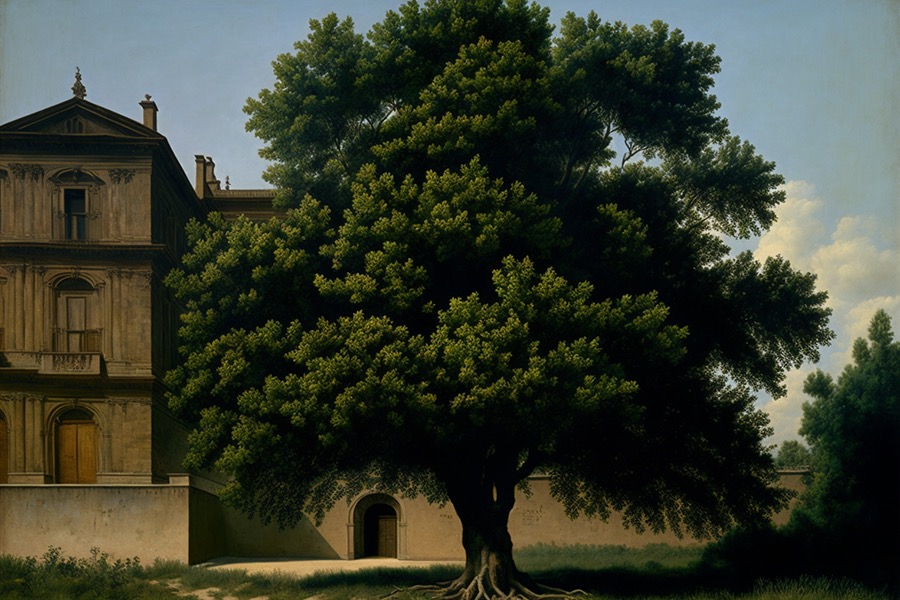
Then Panurge rose up, and, putting off his cap, did very kindly thank the said Panurge, and with a loud voice said unto all the people that were there: My lords, gentlemen, and others, at this time may I to some good purpose speak that evangelical word, Et ecce plus quam Salomon hic! You have here in your presence an incomparable treasure, that is, my lord Pantagruel, whose great renown hath brought me hither, out of the very heart of England, to confer with him about the insoluble problems, both in magic, alchemy, the cabal, geomancy, astrology, and philosophy, which I had in my mind. But at present I am angry even with fame itself, which I think was envious to him, for that it did not declare the thousandth part of the worth that indeed is in him. You have seen how his disciple only hath satisfied me, and hath told me more than I asked of him. Besides, he hath opened unto me, and resolved other inestimable doubts, wherein I can assure you he hath to me discovered the very true well, fountain, and abyss of the encyclopaedia of learning; yea, in such a sort that I did not think I should ever have found a man that could have made his skill appear in so much as the first elements of that concerning which we disputed by signs, without speaking either word or half word. But, in fine, I will reduce into writing that which we have said and concluded, that the world may not take them to be fooleries, and will thereafter cause them to be printed, that everyone may learn as I have done. Judge, then, what the master had been able to say, seeing the disciple hath done so valiantly; for, Non est discipulus super magistrum. Howsoever, God be praised! and I do very humbly thank you for the honour that you have done us at this act. God reward you for it eternally! The like thanks gave Pantagruel to all the company, and, going from thence, he carried Thaumast to dinner with him, and believe that they drank as much as their skins could hold, or, as the phrase is, with unbuttoned bellies (for in that age they made fast their bellies with buttons, as we do now the collars of our doublets or jerkins), even till they neither knew where they were nor whence they came. Blessed Lady, how they did carouse it, and pluck, as we say, at the kid’s leather! And flagons to trot, and they to toot, Draw; give, page, some wine here; reach hither; fill with a devil, so! There was not one but did drink five and twenty or thirty pipes. Can you tell how? Even sicut terra sine aqua; for the weather was hot, and, besides that, they were very dry. In matter of the exposition of the propositions set down by Thaumast, and the signification of the signs which they used in their disputation, I would have set them down for you according to their own relation, but I have been told that Thaumast made a great book of it, imprinted at London, wherein he hath set down all, without omitting anything, and therefore at this time I do pass by it.

